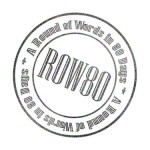When it comes to finding a workshop for your work, you have many options available. You can try to find critique partners (CPs) and beta readers (betas), form a critique group or even take a writing workshop. In fact, it can be overwhelming to make sense of it all so here’s a handy dandy cheat-sheet to help you figure it out.
Critique Partners: Critique partners (CPs) are individuals who critique your work and you critique theirs. These are your partners in crime, writers who will accompany you on your journey. These are the people who will be willing to read and re-read, and re-read yet again that one scene you just can’t get right. In terms of numbers, you can have just one or two CPs, or a whole group.
Critique Group: This is like having a whole bunch of critique partners. Most of these groups meet in person and can stay together for years. My own critique group meets every week, when we critique one writer’s work, rotating through the members so everyone gets a turn every few weeks. We’re basically like a workshop, only without the teacher.
Beta Readers: Beta readers (betas) are writers to whom you send a full version of your book. They’re called beta readers because they essentially “beta-test” your book, the way beta-users will test out new software. Usually betas are different people from your CPs so you can get fresh feedback on your work, though sometimes these individuals can overlap. Betas differ from CPs in that the latter usually read your work as it’s in progress and look at more specific problems. Betas, because they see the whole book, can give you more global comments on the book overall.
Writing Workshop: This is a great way to meet new writer-friends and maybe even form a critique group after class is over. My current critique group grew out of a writing class where a handful of us started the group. The group has changed and grown over the years, but it all started with that first class. The advantage of a writing workshop is that you have the teacher there to keep discussion moving and to answer questions on craft.
Now you tell me: Do you workshop your writing? What kind of workshop scenarios have worked best for you?
This post is part of DIY MFA. For more information, check out the DIY MFA Facebook page or join the DIY MFA list to get a FREE workbook. You can also find links to previous DIY MFA posts by going to the menu tab.












 Call me Gabi (pronounced gah-BEE). I'm a writer, freelance teacher, and a lover of books and words. I'm also the instigator of DIY MFA. iggi's my sidekick, but he thinks he's the brains behind this operation.
Call me Gabi (pronounced gah-BEE). I'm a writer, freelance teacher, and a lover of books and words. I'm also the instigator of DIY MFA. iggi's my sidekick, but he thinks he's the brains behind this operation.
 ROW80 Check-In (4)
ROW80 Check-In (4) YA Cafe Book Club: The Unbecoming of Mara Dyer
YA Cafe Book Club: The Unbecoming of Mara Dyer YA Cafe: Building Suspense
YA Cafe: Building Suspense